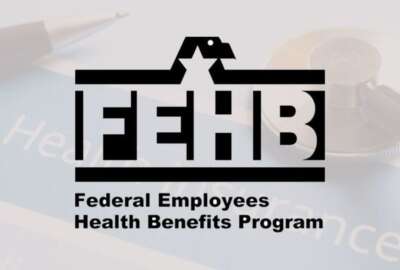Lieberman puts reorg authority on ‘bucket list’
Sen. Joe Lieberman (I-Conn.) has sponsored legislation to revive the fast-track authority requested by President Barack Obama. Other senators, however, want mor...
Getting Congress to approve a bill that would limit its own power seems like a long shot. But President Barack Obama’s request to reestablish the fast-track authority that would let him consolidate agencies got a boost from the head of the Senate committee that oversees government management.
Sen. Joe Lieberman (I-Conn.) said getting the legislation passed is on his “bucket list” of things to do before he retires in January.
“Whoever is elected in November to be our next president will go into office with a public demanding changes in government, elimination of waste and a movement back to a balanced budget,” he said. “This authority would give our next president a real opportunity to meet those public expectations.”
Lieberman spoke at the end of a Homeland Security and Governmental Affairs Committee hearing on the legislation. He is both the chairman of the committee and has sponsored the legislation, along with Sen. Mark Warner (D-Va.). Members from the left and right sides of the political spectrum gave their verbal support to the idea, with a few strings attached.
Obama in January asked Congress to pass a law granting him the “consolidation authority” last held by President Ronald Reagan. As conceived, Congress could only approve or reject reorganization plans the president submitted. More recent presidents have used similar fast-track authority to get Congress to agree to free trade proposals.
Obama also said he would submit a proposal to merge overlapping business- and trade-related agencies, including the Commerce Department.
GAO report shows duplication is rampant
Since then, the Government Accountability Office has published a 423-page report on duplicative programs throughout the government. It singled out several business and trade programs as overlapping or fragmented.
Unlike the President, lawmakers have not proposed any legislation targeting the programs mentioned in the GAO report, Sen. Tom Coburn (R-Okla.) said. “I’m fully supporting the President’s idea to reorganize. I’m going to help on this bill,” he said. “But we’ve got to do the other steps as well.”
Those steps include publishing a list of programs that each agency offers on its website. The Education Department is the only one to do so, he said.
In a pilot program, OMB is requiring a few agencies to take inventory of their programs. The year-old Government Performance and Results Modernization Act mandates it as well.
“It’s not something that we can do overnight,” OMB Controller Danny Werfel said. “We have to work with federal agencies to evaluate systems and information flows that they have — different definitions of programs and activities. Our accounting systems, program systems and budgetary accounting systems have grown up over time in a way that is not fully rationalized to answer some of these basic questions.”
“What you’re saying is, ‘We can’t tell you what we’re doing today,'” Coburn said. “If we can’t measure it, we can’t manage it. And you come from the Office of Management and Budget.”
Lawmakers skeptical without more details
Other lawmakers shared his skepticism. Sen. Susan Collins (R-Maine), the committee’s ranking member, said she would not feel comfortable granting the President fast-track authority to merge agencies without first seeing the details of the specific proposals.
“We are being asked by the administration to develop and vote on the fast-track reorganization authority in the absence of the actual reorganization proposal that we are told would be submitted for consideration using this new authority,” she said.
The bill “cuts Congress out of the process except for an initial consultation,” she said.
That’s a mistake, according to GAO Chief Operating Officer Patricia Dalton. During the 1940s and 1950s, the Hoover Commission led a successful reorganization of government because it had the President and lawmakers’ support from the get-go, she said.
“There was significant consultation with Congress before a proposal was submitted and before the reorganization authority was asked to be used,” she said. Congress and the White House could agree on the goals they were trying to achieve, she said.
“Fixing the wrong problems or fixing the right problems poorly can cause more harm than good,” she said. “In other cases where there wasn’t that type of consultation, the reorganization authority wasn’t used because Congress didn’t buy into those proposals and said, ‘No.'”
The proposal to merge the Commerce Department, Small Business Administration, the U.S. Trade Representative and three smaller agencies is just a “framework” now, Werfel said.
He said the White House would work with lawmakers to fill in the details of that framework if Congress approves the fast-track authority.
“We’ve done a tremendous amount of consultation with businesses, think tanks, government employees, former and current, and many members and committees on Congress in developing that framework,” he said. “As we convert that framework to a specific proposal, if we get the reorg authority, that consultation would continue.”
RELATED STORIES:
GAO: ‘Virtually all’ agencies may have overlapping programs
Analysis: Government reorganization ‘challenging terrain’ for Obama
One year later: Experts weigh in on GPRA modernization
OMB attacking duplication with 11-agency pilot
Copyright © 2024 Federal News Network. All rights reserved. This website is not intended for users located within the European Economic Area.





